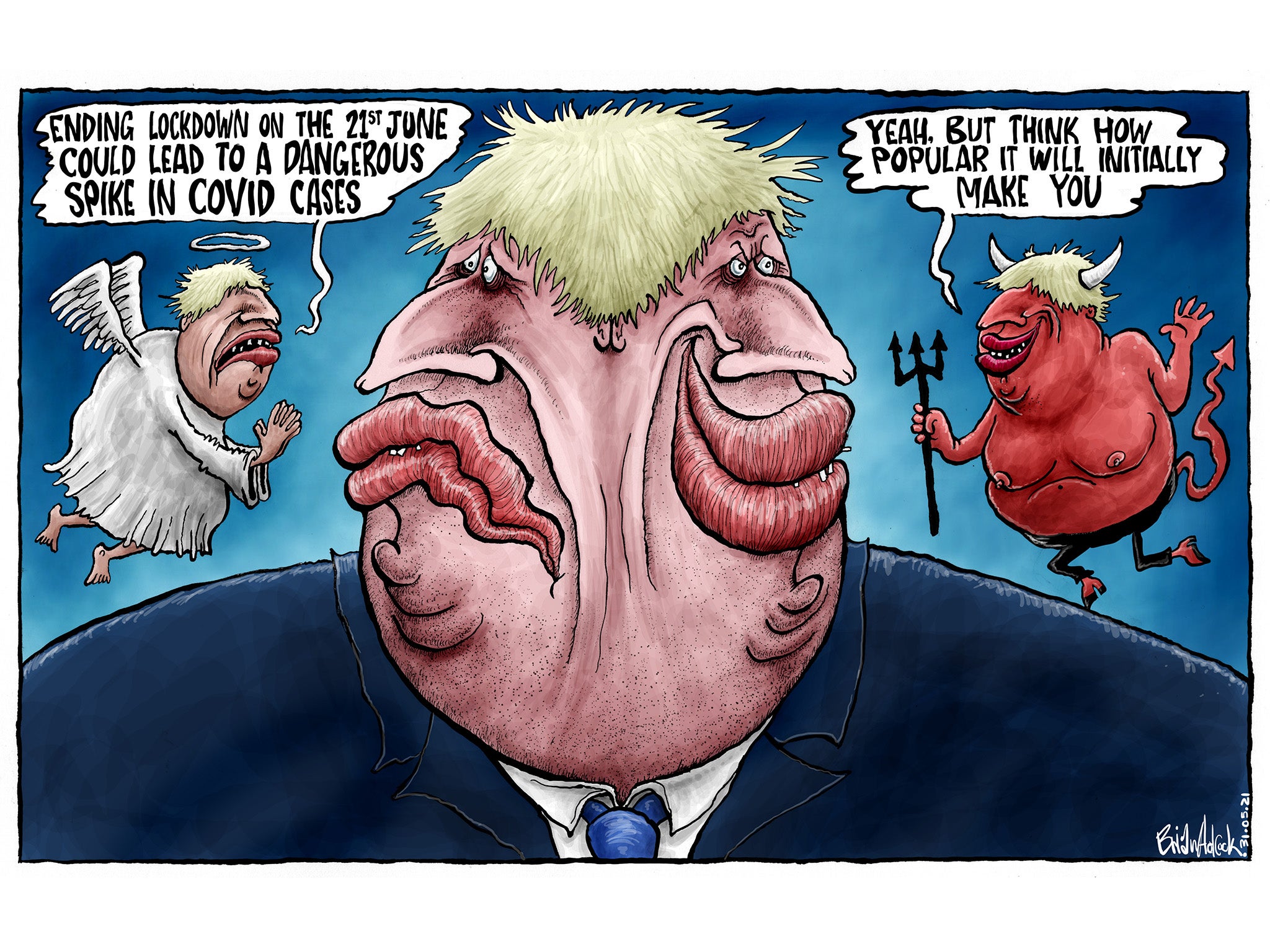An under-pressure Matt Hancock must not become a ‘protective shield’ around Boris Johnson
Editorial: The health secretary has to answer questions about what happened in care homes during the pandemic – and the PM can’t use him as a barrier against criticism

Pressure is rightly growing on Matt Hancock, who holds the title of secretary of state for health and social care but faces mounting allegations he prioritised hospitals and neglected care homes in the early stages of the pandemic.
Some of the claims by Dominic Cummings in his marathon appearance before MPs last week were self-serving, but one in particular rings true: that Mr Hancock’s assertion that he threw a “protective shield” around care homes from the outset was “complete nonsense”. Indeed, the Department of Health and Social Care’s guidance to hospitals on 19 March last year urged them to free up beds for Covid sufferers by discharging patients without testing them for the virus. About 25,000 untested patients were sent to care homes between 17 March and 25 April, when the guidance was changed to say they should be tested first.
Although Public Health England suggests only a small proportion of all care home outbreaks were caused by hospital discharges, that does not absolve the government from responsibility; Mr Hancock was slow to urge the care sector not to use agency workers who switch between different homes. On both testing and agency staff, the damage was done before the official advice was changed.
We will probably never know how many of the 36,000 Covid deaths in care homes were unavoidable but we deserve more honesty from the government about its initial mistakes. In the Commons last Thursday, Mr Hancock issued broad brush denials, saying Mr Cummings’s “unsubstantiated allegations” that he lied to Boris Johnson about care homes were “not true”. It was only under sustained pressure from journalists at a press conference later that the health secretary conceded his commitment was to ensure discharged patients were tested when the capacity for such tests had been built. It seems unlikely that Mr Johnson interpreted his remarks in the cabinet room in that way; it appears that last May, the prime minister demanded to know whether Mr Hancock had misled him about testing.
On Sunday’s TV and radio programmes, Mr Hancock’s departmental colleague Nadhim Zahawi, the vaccines minister, deployed as his defence that “hindsight is a wonderful thing”. Mr Zahawi also suggested that the government was considering making the Covid-19 vaccine compulsory for NHS staff, something that Labour’s Thangam Debbonaire has pointed out could backfire. The shadow Commons leader said that it would be more productive to work with NHS staff, rather than issuing “threats”. Given the current pressure around Mr Hancock, the government should be careful about how it deals with issues surrounding the vaccine rollout – which has been a success.
When it comes to care homes, Mr Hancock cannot argue he was not warned. He was sent an email on 26 March last year by the Care Provider Alliance, an umbrella group for 10 bodies representing thousands of care homes, that said managers were being “pressured” to take in untested hospital patients and were “terrified” this was causing “outbreaks” in homes.
Mr Hancock is in a hole and needs to stop digging. He is making his own position worse by insisting he has always been “straight” with the public. A more honest approach would be to admit that ministers were terrified by the gruesome TV pictures of Italy’s hospitals being overrun and acted with the best of intentions to stop that happening in the UK. In doing so, ministers could concede they briefly took their eye off the ball of the impact on care homes. They might be advised not to do so for fear of provoking legal claims for negligence. But if ministers do not come clean, the danger for them is that the public will believe that the more visible part of the system in hospitals was prioritised over its perennially poor relation in care homes.
Broad brush denials from Mr Hancock will not win the public’s trust or confidence. He must produce a line-by-line response to these serious allegations when he is questioned on 10 June by the two select committees that quizzed Cummings. The families of those who lost loved ones in care homes cannot be expected to wait for a public inquiry that is unlikely to report until after the next general election.
If the health secretary intends to point to the long grass of the inquiry rather than provide immediate answers, Mr Johnson should overrule him. If his answers are not convincing, Mr Johnson should sack him.
The prime minister might be tempted to keep him in place for now – to avoid handing Mr Cummings a scalp, and to allow him to move him at a time when it would suit Mr Johnson politically. Mr Hancock must not become a “protective shield” for Mr Johnson.
Join our commenting forum
Join thought-provoking conversations, follow other Independent readers and see their replies
Comments
Bookmark popover
Removed from bookmarks